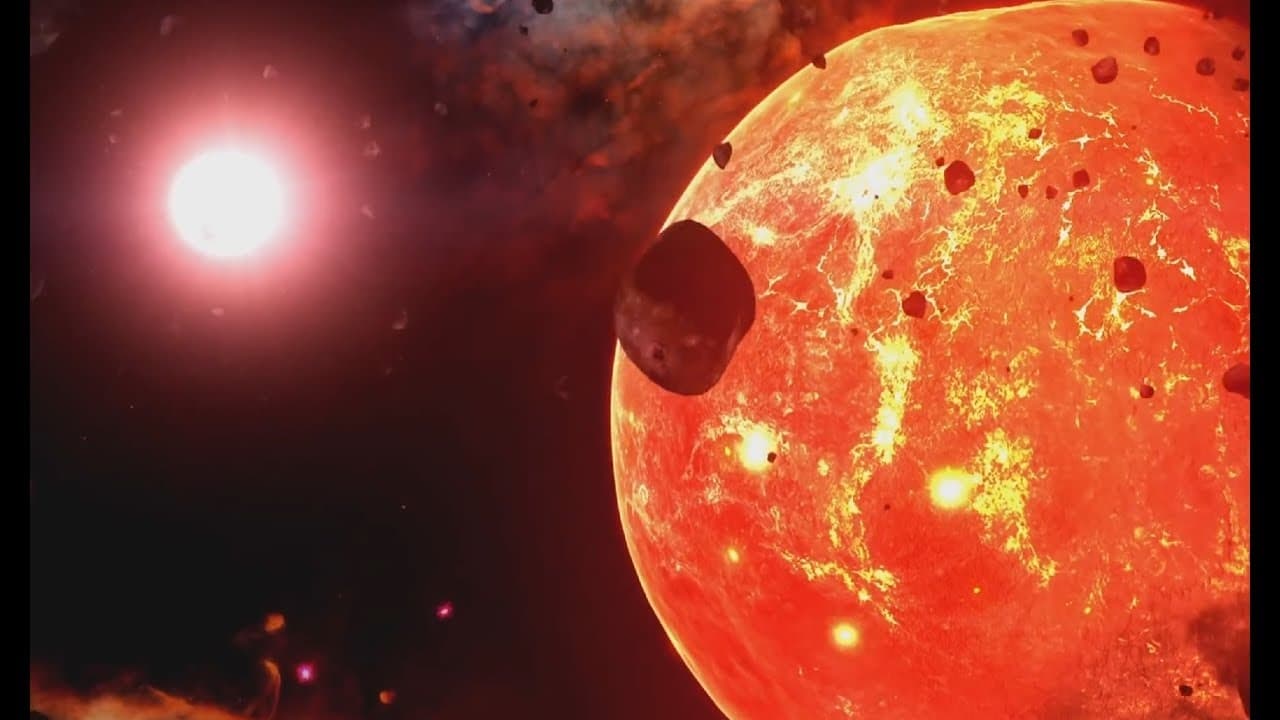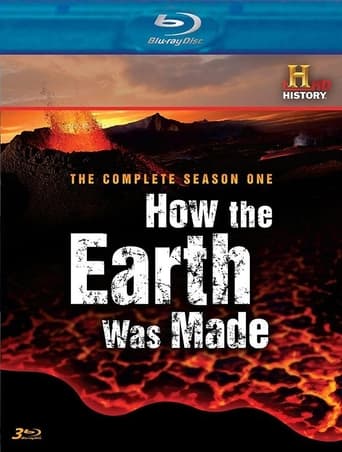Robert Joyner
The plot isn't so bad, but the pace of storytelling is too slow which makes people bored. Certain moments are so obvious and unnecessary for the main plot. I would've fast-forwarded those moments if it was an online streaming. The ending looks like implying a sequel, not sure if this movie will get one
davidbe-588-341794
The History Channel is to be congratulated on the superb quality of this documentary series, which I regard as perhaps the best documentary series ever made. This series is downright EXCITING. I was simply mesmerized by every episode. Each episode uses beautiful high-definition on-site photography and excellent computer graphics to illustrate the geologic processes involved in creating the landscape at various sites around the globe. The viewer not only learns about the specific areas covered in each episode, but in the process learns about the global geological processes that make the Earth "tick."Episode List, Season 1 (2009): 1. San Andreas Fault; 2. The Deepest Place on Earth; 3. Krakatoa; 4. Loch Ness; 5. New York; 6. The Driest Place on Earth; 7. Great Lakes; 8. Yellowstone; 9. Tsunami; 10. Asteroids; 11. Iceland; 12. Hawaii; 13. The Alps.Episode List, Season 2 (2010): 1. Grand Canyon; 2. Vesuvius; 3. Birth of the Earth; 4. Sahara; 5. Yosemite; 6. The Rockies; 7. Ring of Fire; 8. Everest; 9. Death Valley; 10. Mt. St. Helens; 11. Earth's Deadliest Eruption; 12. America's Ice Age; 13. America's Gold.Episodes are 45 minutes long and may be watched in any order. I found that, in every case, episodes that I might expect to be less interesting from the title turned out to be just as fascinating as any of the others. The high quality level is very consistent throughout.No previous science background is needed to understand the material, which is very well explained. Episodes not only teach how our amazing planet behaves, but to make things even more fascinating, they also clearly explain how we know all these things, and in a manner suitable for all ages from 4th grade to senior citizens. Leading scientists in the field (both in the field of geology and "in the field," i.e. on location) supplement the narration. Quick summaries of the evidence for their conclusions are provided throughout the program, which is an effective learning tool that helps tie everything together. Try to catch this series in reruns on the History Channel if you can. Although I am running out of superlatives in describing both the content and the quality of the series as broadcast, unfortunately the quality (as distinguished from the content) of the DVD version is vastly inferior, at least for Season 1 (I have not seen Season 2 on DVD). Whereas the original broadcast was in glorious 16:9 High Definition, on the DVDs the 16:9 picture is shrunk down to a 4:3 format. Thus, it appears letter-boxed on a standard definition TV but appears as a "postage stamp" image on a high definition TV (if you zoom it to fill the screen the picture is severely degraded). Although the History Channel should be very proud of this series, it should be ashamed of the image quality of these DVDs. There is just no good reason the DVDs should not have been presented in 16:9 (anamorphic) format. At the time of this writing there is no BluRay version available.Regardless of format, however, anyone with any interest at all in the world around them should check out this incredible series.Update: BluRays are now available for both seasons. The DVDs for Season 2 are apparently 16:9 (I'm not certain) so may not have the same quality problem as the Season 1 DVDs have. Good news on both counts.

